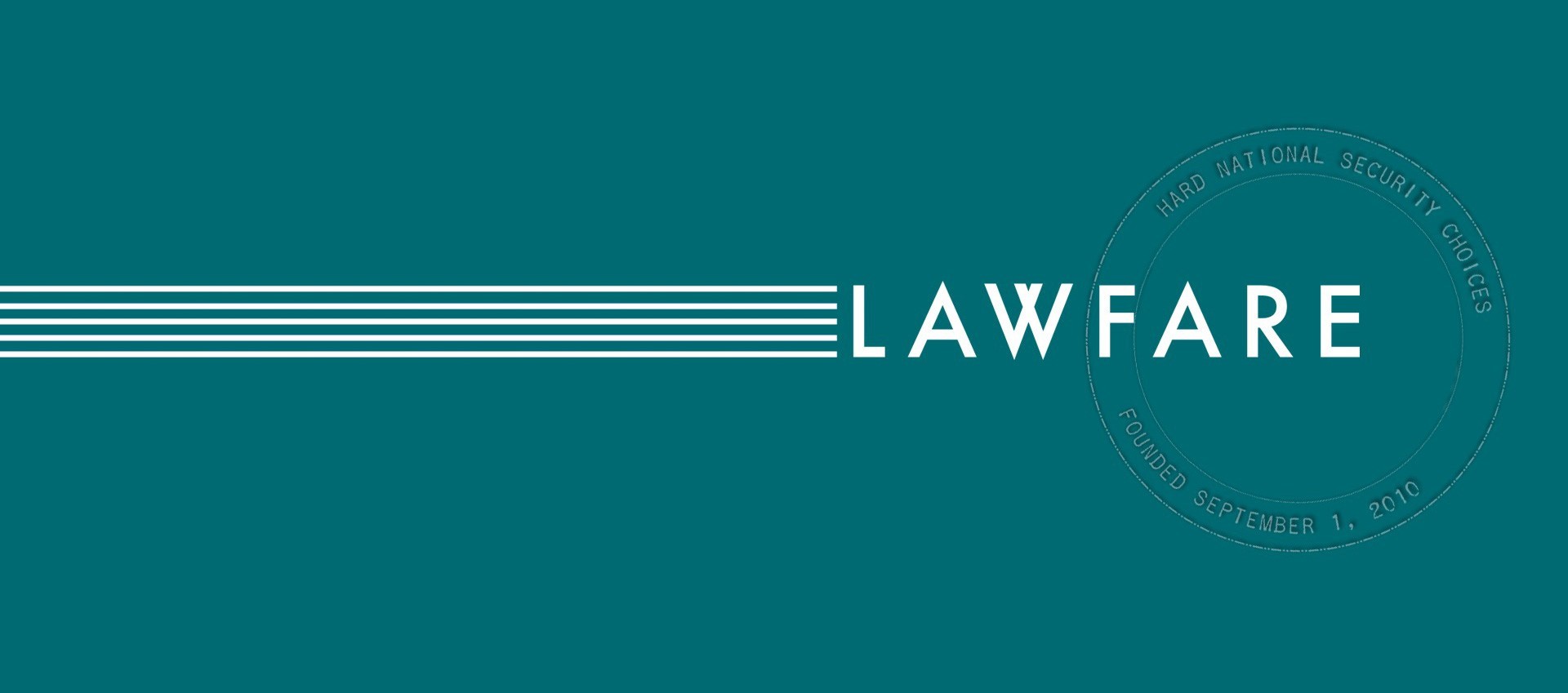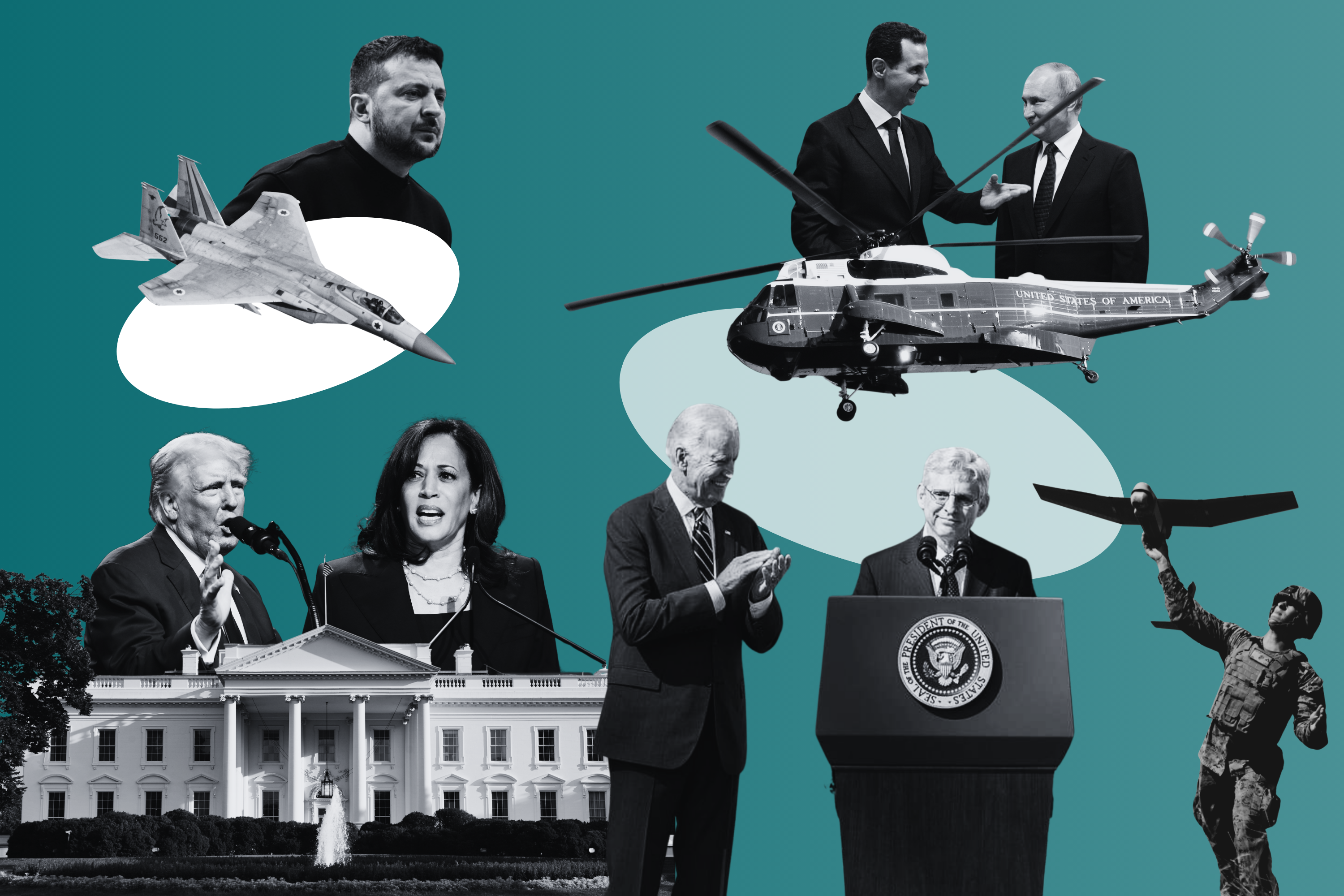The Week That Was: All of Lawfare in One Post
Benjamin Wittes celebrated Lawfare’s sixth birthday with our readers and asked that readers consider contributing to our fundraising drive to help this publication’s coverage expand.
Published by The Lawfare Institute
in Cooperation With

Benjamin Wittes celebrated Lawfare’s sixth birthday with our readers and asked that readers consider contributing to our fundraising drive to help this publication’s coverage expand.
|
Give Lawfare
a birthday gift! |
Quinta Jurecic uploaded the D.C. Circuit Court of Appeals’ ruling that Abd al Rahim al Nashiri cannot turn to the federal court system to block his ongoing military commission trial. Steve Vladeck began Lawfare’s coverage of the case, arguing that the decision was wrong and would have bad consequences. Peter Margulies, by contrast, endorsed Judge Thomas Griffith’s opinion as an opportunity for the military tribunal process to play itself out in a fair and efficient manner. Robert Loeb warned that the government’s argument that the courts should adopt a holistic approach when evaluating when hostilities began may undermine the government’s separate argument that the courts should defer to the political branches when it comes to determining when our wars end. Benjamin Wittes added his take that the opinion did not clarify the lingering jurisdictional doubts that will one day need to be resolved. In a separate post, Ben asked Congress to allow Guantanamo Bay detainees to the United States for a trial lest the Nashiri imbroglio cause an eventual conviction to fall.
Robert Chesney reminded us that an ongoing U.S. air campaign in Libya, which has helped U.S.-backed forces on the ground defeat the Islamic State, has drawn scant media attention.
David Wirth argued that the landmark Paris agreement on climate change constituted a legitimate exercise of the executive branch’s constitutional authority.
David Bosco cautioned Palestinian authorities not to hold their breath as the International Criminal Court examines alleged abuses that occurred on their territory. He also asked whether the ICC should investigate the Philippines after Rodrigo Duterte’s election has led to a surge in drug-related extrajudicial killings.
Elena Chachko reviewed the claims by the United Nations that its officials should be afforded legal immunity after Israel filed charges accusing two aid workers of helping Hamas.
Paul Rosenzweig warned that critical cooperation between Washington and local governments breaks down when states needlessly divulge classified cyber information they receive from federal agencies. Paul also highlighted Russia’s growing proficiency in using cyber attacks to launch propaganda campaigns overseas.
Aleksei Lund shone a spotlight on Moscow’s nefarious and largely overlooked strategy to destabilize Moldova.
Darren Tromblay penned an essay documenting how “hybrid warfare” has been a traditional weapon deployed against the United States by her adversaries.
Herb Lin gave his initial thoughts on a media story that the U.S. military is developing a series of “loud” cyberweapons.
Daniel Rosenthal offered support for the Department of Homeland Security’s proposal to obtain intelligence about incoming visitors through their social media accounts.
Quinta announced a new Lawfare research paper by Eric Manpearl that argues presidential elections can pose unanticipated dangers for our intelligence community.
Mai El Sadany approvingly flagged a piece of congressional legislation that would implement sanctions on the individuals who are responsible for facilitating the Syrian regime’s incalculable number of human rights violations.
Stephanie Leutert tracked the latest homicide numbers from Mexico, which tell a grim story.
Nicholas Weaver asked readers how policymakers can help upgrade mobile phone security from a luxury for only those able to purchase the latest iPhone or Android to an accessible good. He also identified a major privacy problem inherent in Facebook’s “people you may know” suggestion mechanism.
Paul Salem evaluated Lebanon’s political stability at a time when ethnic unrest and regional conflict is threatening its security.
Quinta posted a new episode of The Lawfare Podcast that features both Dave Aitel and Matt Tait challenging all your preconceptions about the vulnerabilities equities process.
Ben published the abundantly alliterative “Hackers, Heart Patients, and Hellfire” episode of Rational Security, wherein the gang discusses the latest developments in our war against the Islamic State.
And that was the week that was.





